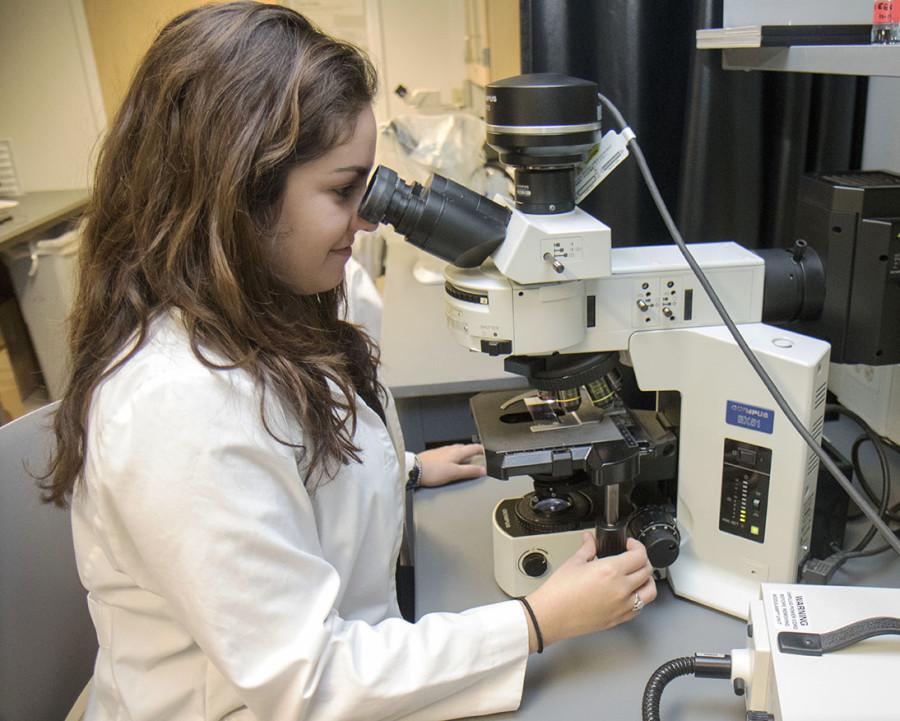Pre-health students flourish at Loyola
Andrea Dousdebes, biology senior, examines the cartilage in chicken embryos in a lab in Monroe Hall. Dousdebes is one of 10 Loyola students currently applying to medical school, looking to attend in the fall of 2016.
December 10, 2015
Classes are ending, finals are closing in upon us and dreams of a stress-free winter break are not far off. However, for students like Andrea Dousdebes, finals are just the tip of the iceberg.
Dousdebes, biology senior, is waiting to hear from the seven medical schools she recently applied to, and she should be getting her first round of life-changing decision letters before Christmas. Dousdebes is one of 10 Loyola seniors planning on going on to medical school
next fall.
According to Dousdebes, despite being known as a prominent liberal arts university, Loyola thoroughly prepares its students who want to go on to careers in medicine.
“We’re not a science school, and the sciences aren’t the biggest part of campus, but even still, our acceptance rates are high, and I think that speaks wonders because science isn’t the school’s number one focus,” Dousdebes said.
Loyola does not have the option to major or minor in pre-med and according to Edouard Crago, pre-health advisor, there was widespread push against programs that do. In fact, Loyola does not even require students to be in a science-related major to go on to medical school, he said, as long as they take the courses that fit the requirements of the schools they are applying to.
Crago said having a non-health-related major could be beneficial because they will have something else to fall back on.
He said Loyola’s mission to educate the whole person inspired a change of focus in the pre-health advising process this year.
“We are trying to broaden the horizons of our students because not everyone wants to be a medical doctor, but still wants to be in the health field,” Crago said.
Lynn Koplitz, chair of the pre-health professions committee, said Loyola’s small size is also beneficial to students. She said that bigger schools tend to have classes of 200 or more, which is unlikely at Loyola.
“I know all of my students by name, even in my ‘big’ class of 65 this semester,” Koplitz said.
Koplitz said that students at Loyola have access to their science professors.
“We love teaching and want to help them learn,” Koplitz said.
Koplitz said that, in her experiences, classes at large research schools are frequently taught by graduate-level teaching assistants who may not be as passionate or as experienced as the professors who teach at smaller schools.
Dousdebes agreed and said the individual help she received from her professors has allowed her to reach this critical moment in her life.
“I’ve always wanted to go into medicine ever since I was a kid. I’m nervous to hear from my schools, but I’m also excited,” Dousdebes said.








